Under the broad spectrum of services provided to customers, the Hospitality Industry is a dynamic and continually expanding sector. The realm of hospitality encompasses various categories, including hotels and resorts, hospitals, food and beverage establishments, travel, and tourism enterprises, as well as entertainment and recreational facilities.
Regardless of the area of services performed, it is not uncommon for situations to arise where a client is dissatisfied. Where the service performed or product delivered failed to live up to an expectation or a promise – call it a “service deficiency”.

Service deficiency or lapse, is something anyone reading this article can attest to, either as a provider who was faced with an unhappy client or as a customer who was let down for one reason or another.
There is only one antidote when you have failed to deliver what was expected or promised - service recovery. Whether your organization is large or small, recovery from a shortcoming is critical to ensuring the integrity and longevity of your business.
In my former role as a Hospitality Manager, I had the advantage of witnessing firsthand the realities of service failures (and how to correct them). Mind you, this was on a very large scale. This afforded me many opportunities to instill and practice some of the principles around service recovery.
And now as a Hospitality Ambassador, I have the distinct privilege to explore numerous hospitality venues worldwide, meeting chefs, reconnecting with old acquaintances and collaborating with new ones.

It thrills me to discover that the members of these communities, including associates, staff and management have wholeheartedly embraced service recovery “virtues”, such as empathy, kindness, and humility in their daily service offering. Through my conversations I have gained valuable insights into how each hospitality sector responds to and manages service recovery.
“Service is the lifeblood of any organization. Everything flows from it and is nourished by it”. – Thomas J. Watson Jr.
An Apology Buffet
At the hospital where I worked, we served ten thousand meals each day Mondays through Fridays and three thousand meals on Saturdays and Sundays. I lost count of all the apologies delivered to customers over the years. However, I also saw how things got better and the expected apologies were less frequent and quickly replaced by gratitude!
How did that change occur? Through the transformative power of an empathetic apology. One cannot begin to correct a service failure, without understanding the problem – and that requires being empathetic, quick to listen, acknowledge and apologize.
An apology must never be underestimated. It has the power to profoundly impact how a guest feels in response to a mistake or a mishap. It can convert a negative experience into a positive one, rebuilding trust, and strengthening the relationship between the guest and the establishment.
As quoted in a recent post, hospitality is about the connection we make with our clientele. It is intended to be a dialogue. “Hospitality is how the delivery of that product makes its recipient feel” (Danny Meyer). One way that happens is through apology.
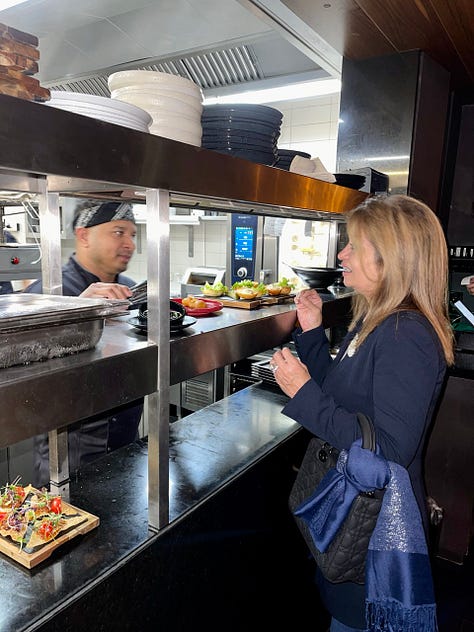

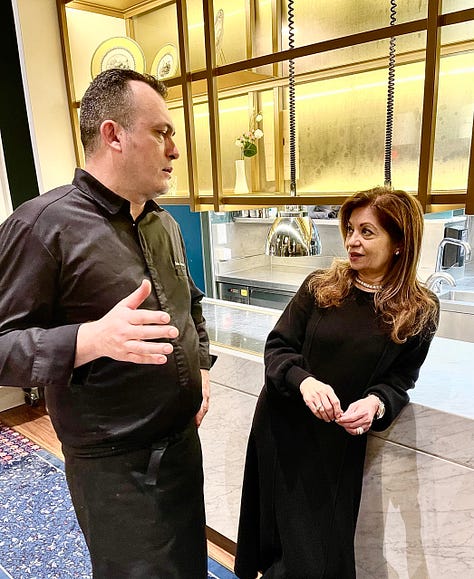
Another Side of Sorry
The restaurant I managed had just closed when the surgeon entered and headed straight to his usual table tucked away in the corner. One of my team members spotted him and informed him that the restaurant had just closed after lunch and was no longer serving. The physician appeared visibly upset.
Sensing his distress, I approached his table with a glass of water. As he looked up at me, he shook his head and uttered, “Not today, Kiran. I just lost a patient.”
Having noticed his arrival, I had already proceeded to the kitchen to place his customary sandwich order. It was swiftly brought to the table as I joined him. Without uttering a word, he delved into his meal while I remained seated across from him offering him a brief comforting smile that silently conveyed, “It’s okay, you can stay as long as you like.”
Indeed, it was a challenging and poignant moment for both of us. The burden of his loss and the emotional toll had taken on him were palpable. I acknowledged the scope of his work, reminded him that his efforts were appreciated and that he made a difference. I asked open ended questions in the case he wished to talk. I verbalized statements such as, “I am so sorry for your loss, it must be difficult for you.”
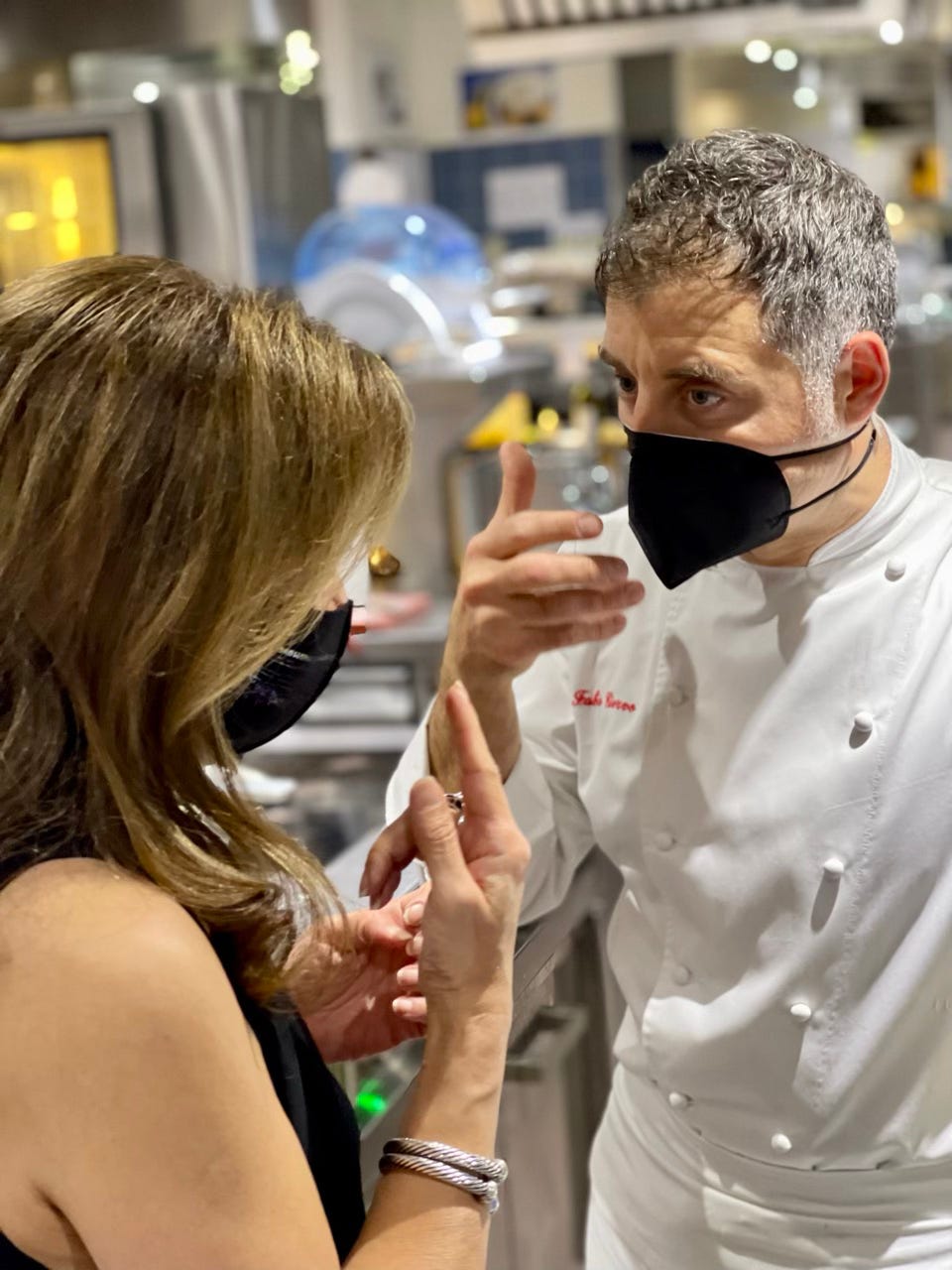
How often have you witnessed someone who has had a bad day?
There is always room to show genuine care and recognizing where a client is at in any particular setting. By being attentive and taking proactive action, even the smallest gestures can make all the difference.
Lifting the Lid Off Service “Norms”
Service recovery is not just about fixing problems in the moment. It should lead to creative solutions that can benefit future clients. Service norms need to be stretched!
After the incident with this physician, I decided to extend our closing time by fifteen minutes in order to provide flexibility to cater to specific circumstances and potential late arrivals.
Then I empowered staff members with the flexibility and discretion to assess each situation and determine appropriate closing hours. We also provided staff training on how to handle such requests, ensuring the importance of exceptional service while also considering constraints.
Listening attentively and allowing clients to fully express their concerns, providing undivided attention, and demonstrating empathy shows them that they are valued.
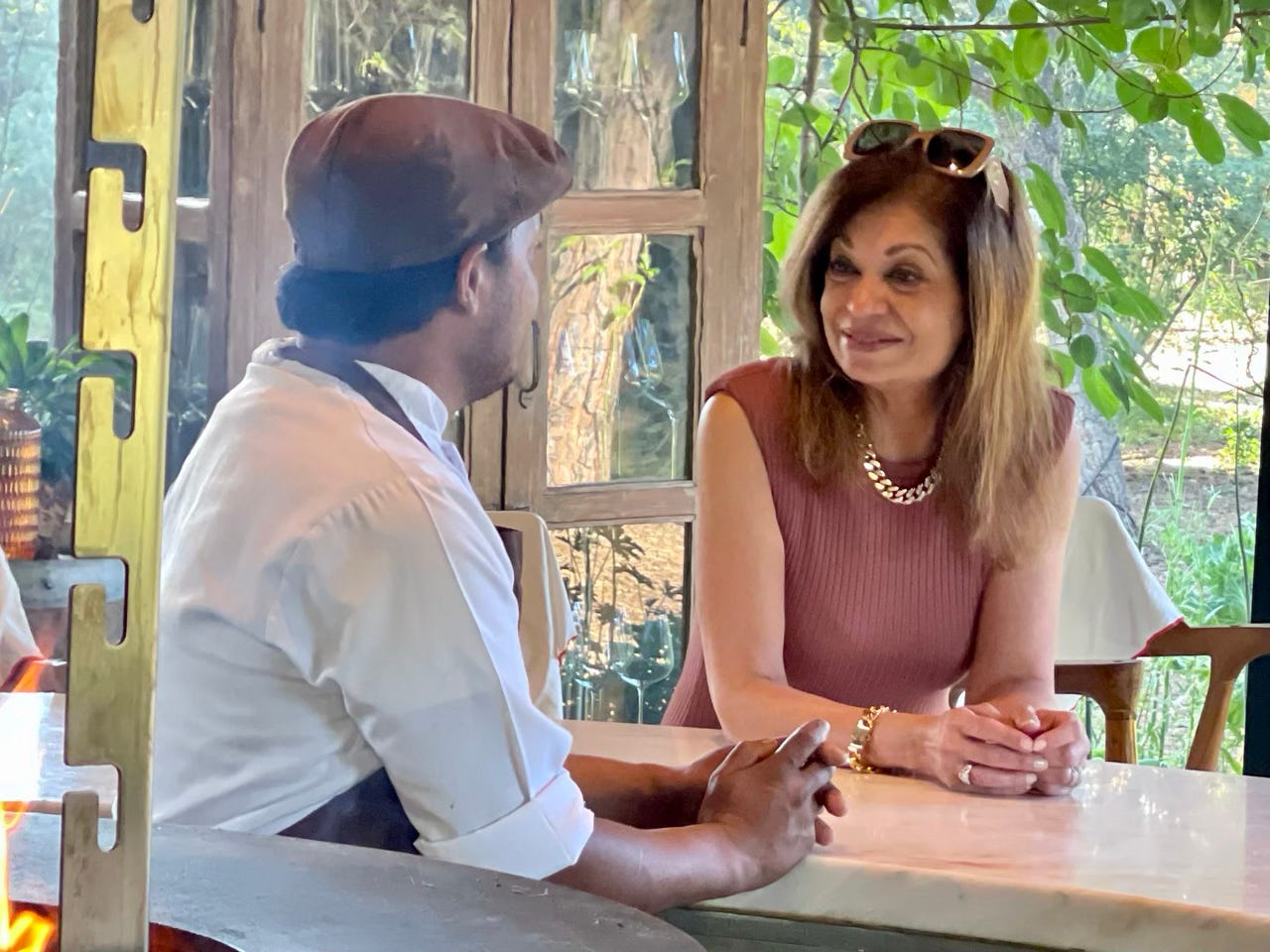
Recipes for Redemption
Can an apology actually create an experience that fosters loyalty, satisfaction, and long-term relationships?
Yes! Service recovery is all about redemption.
An apology has the potential to make your guest feel validated, valued, consoled, reassured, and even charmed. It has the power to build a stronger bond between parties that goes beyond a mere transactional relationship.
But handling recurring complaints about food service requires proactive and customer-centric approach. There is a “recipe” required for acts of redemption. A recipe that includes listening attentively and allowing clients to fully express their concerns, providing undivided attention, and demonstrating empathy shows them that they are valued.
A Cup of Amends
Identify the root cause via thorough investigation allowing for appropriate action to prevent future occurrences.
Convey the findings transparently, explaining steps taken to address the issue and assuring them that their feedback has been taken seriously. This helps build trust.
Tailor the apology (rather than a one-size-fits-all approach). Factor in the loyalty, frequency of visits and past interactions. Make it personal, going the extra mile to make amends is meaningful and feasible!

Stir in Solutions
Be solution orientated. Offer to prepare a dish again to their liking or offer a complimentary meal. Tailor the solution to the specific complaint and the individual’s preferences.
Encourage staff to proactively disclose any delays or changes to orders to manage patron expectations.
Dealing with a delicate situation discreetly does not mean dismissing it. Addressing Food Faux Pas promptly and professionally whilst minimizing any negative impact on those seated nearby is an art form.
Respecting privacy and dignity boosts customer retention.
Hungry for More
Service recovery is as much about anticipating and intercepting problems as it is about repairing them in the moment. There are numerous ways to improve service before it fails.
Actively gather feedback from consumers regarding their encounters. Feedback is essential for identifying areas of improvement, enhancing efficiency, and ultimately elevating the overall customer experience.
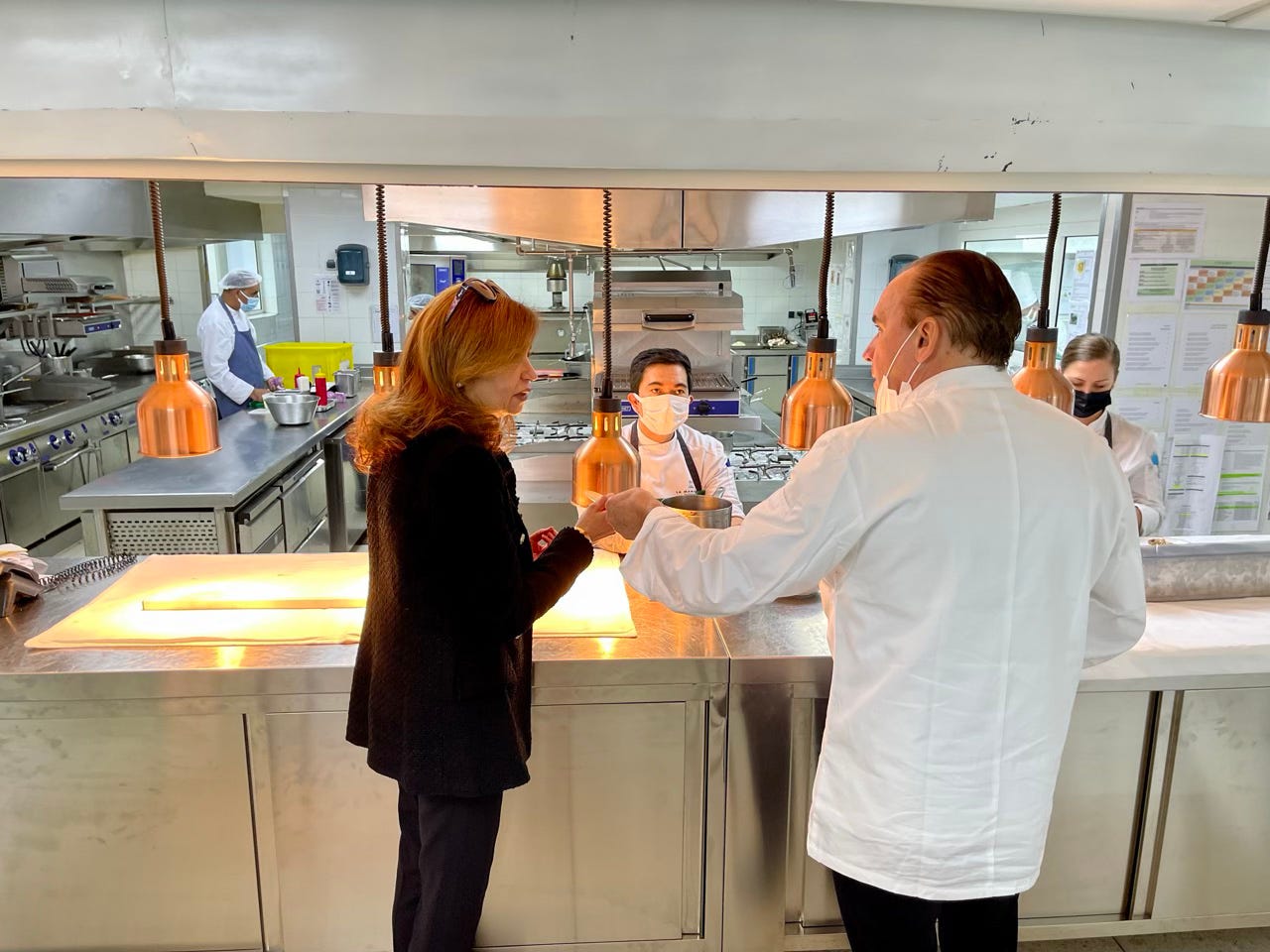
Collaborate with those of influence. Hospitality influencers, whose principles resonate with your brand and desired clientele, are paramount to building reputation. These wordsmiths have the ability to showcase positive episodes, while highlighting exceptional service and special features by creating a positive narrative.
Reach your clientele with consistent correspondence. Tell them about how you are affecting changes that will improve service quality. This interaction captures your audience and builds anticipation for your service offering.
At a visit to a wellness resort in Portugal, we experienced the noise of frogs every night. We were forewarned and educated on preservation of wildlife, presented with options of ear plugs, white noise machines or soothing music options. This made all the difference in our experience at the resort.
There are numerous ways to plan to avoid mistakes and service errors. But the best planning is to recognize that they will happen. Large or small, every company that delivers a service (or product) will be met with the need to recover from a client incident.
What will your approach be?
Sincere apology, active listening, compassion, and intentional resolution are the cornerstones of effective service recovery. I hope you will take these simple principles into your own workplace and turn service faux pas into avenues for development and growth.




Agree!!
Perhaps, this is one of my favourite articles that I have read of yours. Its such a great toolkit for anyone running a business, or heading a customer team or dealing with customers !